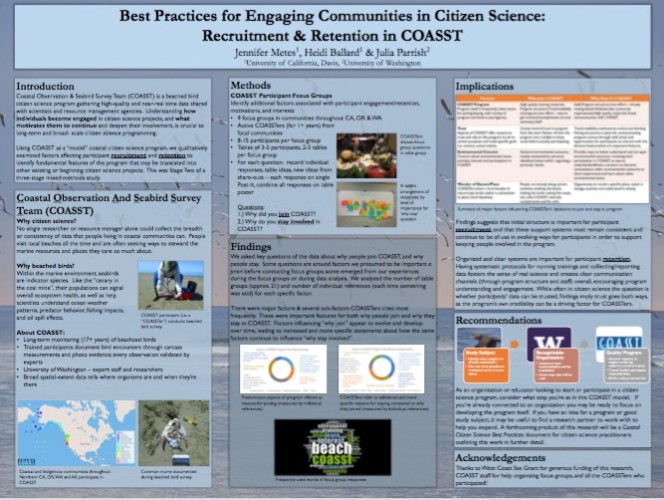Project Duration
2015-2017
Location
Northern California, Oregon, Washington, Alaska
Background
Over the course of their lives, people learn most of the science
they know outside of school, in informal educational contexts of
their own choosing. This project examined such “free-choice
learning” in the context of COASST — a successful and
long-running citizen science program spanning much of the West
Coast of North America. Researchers used quantitative and
qualitative approaches to advance understanding of how learning
and engagement work for COASST volunteers, and what that means of
the success of the program in terms of engagement and retention
of volunteers, and broader outcomes related to scientific
knowledge and its application. Researchers at the Center
collaborated with the University of Washington and Oregon State
University, with funding from NOAA Sea Grant.
Funder
NOAA Sea Grant
Partners
COASST, University of Washington, Oregon State University










